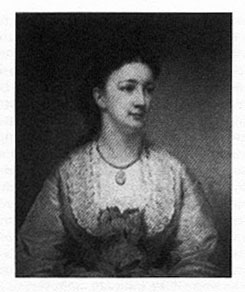MARYLAND STORIES
“Our Phil and Other Stories” By Katherine Floyd Dana
Boston & New York Houghton Mifflin & Co. 1889
These are three simple little stories of the Western Shore of Maryland in the days before the war. They first appeared 15 years ago in the Atlantic Monthly under the pseudonym of Olive A. Wadsworth. It is a great pity that the peculiar social conditions existing at the South in the time of slavery should be left so nearly unrecorded as they have been. We are obliged to look now almost entirely to the works of Mrs. Stowe, who was writing about a state of society foreign to her, and writing for the purpose of undermining the foundations of that society. As people who have now passed the middle of life gradually disappear, those who can tell from their own recollection of the old plantation life become fewer. It is hardly likely that a writer of genius or even a talented writer, will be developed among them. There is still hope that some one, preferably perhaps some woman of the succeeding generation, will yet give us a sympathetic account of what she has at least heard firsthand. For the state of Society at the South before the war was unlike any that existed elsewhere – a condition at once curious and romantic – and there were lights as well as shadows in it and in the relation of master and slave.
The little book before us will do something toward filling the gap we complain of. It is true the people described in it are not slaves, but they have been. “Long before the eventful hour when the great public proclamation of freedom broke every bond in the land with one blow, the process of emancipation had been going on slowly, but very surely in those sections of the South that bordered on the Northern states”. But we see in the humble heroes and heroines of Mrs. Dana’s stories the old feeling of dependence has not quite been lost. “It was true that Ed had tried to move away more than once from the old place and had failed. Others tried it too. Caesar moved away one week and moved back the next. Pomp had tried it. Ben the surliest, sulkiest fellow on the whole place had tried it, and was unsuccessful, for he moved away seven times and at last gave up as an aimless excursion and settled down in the spot where he was born.” Nor is there any doubt as to the relation of master and servant. The position of “the quality” is fully recognized. Good Old Aunt Rosy who always ” walked with her head held high in the air and her elbows squared – that is, if it is possible to square such a circle as her arms were – and with the rolling gait that could afford to appear unsteady because it was really so firm. Her great cushioned feet came down with elephantine weight and softness, silent as the cat;s, but shaking the earth, and as she stepped she always seemed to sink an inch or two before she came to the solid, as if she scrubbing brushes strapped to her soles and the bristles bent under her weight. Hundreds of times when we were all little and Aunt Rosy had washed and dressed us for dinner, she would take Lucy and me in her arms and Fred and George on her back, singing in a fashion of her own: ‘Aunty Rosy’s pinky posies, two in her arms two on her shosies’ then she used to settle down, so as she walked, it felt as if she were going through the floor ; but she never did, and so, enviorened and surmounted with children, she carried us down the stairs across the broad hall to the ding room and deposited us safely in our seats.”
Nor less delightful is Dick, “the very genius of deportment,” though we hear less about him ; nor Sancho, who owns to being light-headed but not light-fingered. “I’m so feerd o’ gittin cotched I dursn’t hook noffink!” His mistress believes him. “I can’t think you would look me in the face,” says she, “and tell me what wasn’t true.”
“Oh bress my heart, mistis that’s easy nuff!” answers the boy. “I’ve done it lots of times. Oh bress my gizzard! I’ve told Aunt Dolly more’n leventy thousand lies sence I lived to de house!. Bress all my insides ef I ain’t told Dick a couple of dozen to-day!”
We can but say of Mrs Dana’s stories that we wish they were longer and that there were more of them.
New York Times January 27, 1889



